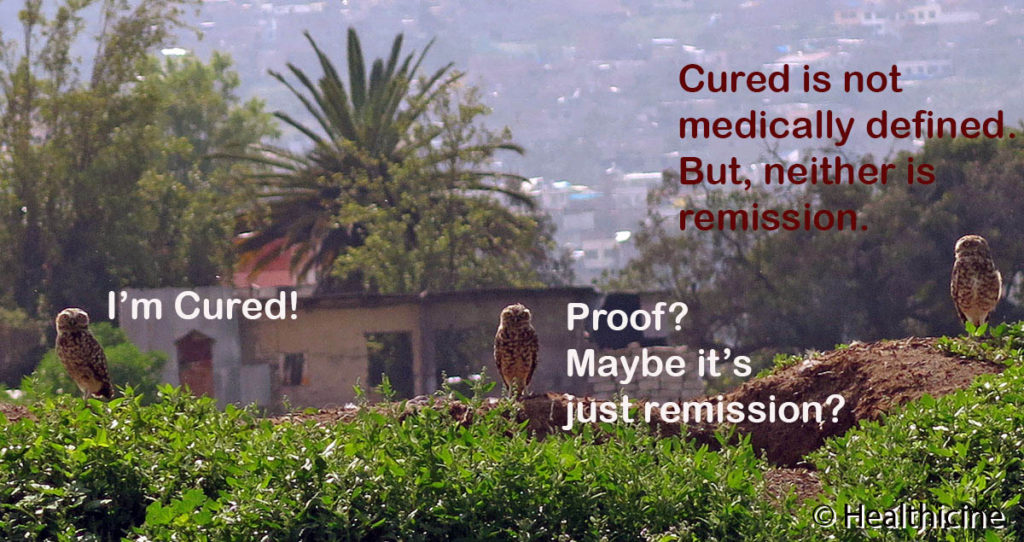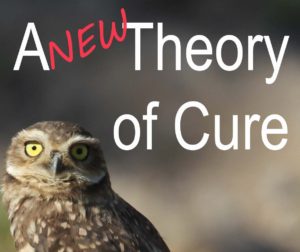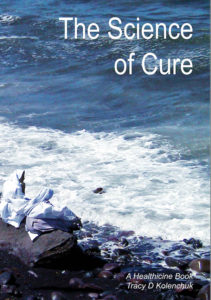
Have you ever had an illness, and then it was cured? Has anyone ever cured your illness? Can you prove you are cured? Can you prove you’ve been cured?
I’ve had many colds – all cured. Officially, “there is no cure for the common cold.” I can’t prove I had a cold, nor that I’m cured – although both claims are obvious and trivial.
Several years ago, I had a hernia, cured by surgery – but my doctor never used the word “cure.” Am I really cured? Did she really cure me? How can I tell? Where’s the proof?
Our medical systems ignore “cured.” It’s not just the top ten disease causes of death that are incurable (heart disease, cancer, COVID-19, accident injuries, stroke, chronic lower respiratory disease, Alzheimer’s, diabetes, influenza and pneumonia” (the only one on the list we consider curable), nephritis (kidney disease). Most diseases are considered incurable.
The common cold, influenza, measles, and COVID, all suffer from “there is no cure for…” syndrome- even though most cases of infectious illness are easily cured.
Officially, we recover from injuries, from the smallest mosquito bite to severe wounds or burns. The word cure is rarely used. But if we check dictionary references, healing is often defined as a cure.
Cure: Heal or make well – Blakeston’s New Gould Medical Dictionary, 1949.
Cure: 7. A means of healing. The Compact Oxford English Dictionary, 1971
Heal: To restore to soundess or healthiness; cure, American Heritage Dictionary, 2000
Medical insurance companies pay for treatments, but not for cures, not for healing, nor for recovery. There are no cures on the list of payouts, even for curable diseases like pneumonia. Patients are billed, of course – for treatments. Insurance pays for treatments, whether they cure or not. Cured, when it occurs, is not documented. It’s not important in current systems of medicine.
Most doctors, when asked, will say they don’t cure. It makes little difference what type of doctor you ask. Both conventional and alternative medical practitioners from surgeons to oncologists, from general practitioners to rehabilitation psychiatrists, from osteopaths, and chiropractors to reiki practitioners and naturopaths – avoid the word cure.
On the one hand, cures are trivial. I was sick, now I’m cured. I took a medicine, or not, and I’m cured. Anyone can see that I’m cured – it’s obvious. On the other hand, many cures are seen as miracles. We look to priests, to saints, and to gods for our cures, and we give them credit as well – after a cure occurs for any reason.
On the other hand, we have no scientific or medical proof of cured for most diseases. Cured is scientifically defined for an infectious disease cured by killing the infectious agent or removing it with a surgery. But even those cases are not documented as cured. They are successful treatments.
Cured is not scientifically nor medically defined for most diseases. We have no test for the common cold cured. We have a test for pneumonia cured:
- 1. Diagnose the disease.
- 2. Administer the medicine.
- 3. Test for the infection.
If the infection is gone, it has been cured by the medicine. But, we don’t have a test for influenza cured. Why not? Medially, cured means cured by a medicine. Influenza is not cured by a medicine. So cured cannot be tested, therefore it cannot be proven.
Officially, we have no cures. None. We have no statistical counts of cured for any disease. Even cancers, measured by cure-rate, although considered statistically cured, not one case can be proven cured. Cured is not medically defined for any specific case of cancer.
It’s silly, but that’s our reality of cure today. It’s not just silly, it’s a serious problem.
Suppose, for example, someone finds a cure for cancer, for diabetes, for heart disease, for nephritis, for Alzheimer’s, or arthritis. What happens next? Instead of acclaim, or perhaps just recognition, we have only challenges.
Is it a true cure? Can we tell? How can we tell? We can’t. Cured is not defined for these diseases. We can’t recognize a cured illness nor a cured patient, even when they are cured. We can’t recognize the cure, much less the cause of the cure. All cure claims are ignored – at best. Nobody cares if we cure pneumonia with a medicine, the common cold with Vitamin C, influenza with an antiviral medicine. There are no statistics for cured – and no interest. Often, it’s worse. Claims of cured and claims of cures are simply dismissed, shamed, in extreme cases, the doctor or the curer is punished – sometimes for failure to use a treatment in the standard of care for that disease, a treatment that is known to not cure.
Maybe you’ve noticed.
We have hundreds of doctors, writing thousands of books about cures. A search for “diabetes cure” on Amazon lists over 4000 results, although many of them offer treatments, not cures. But, many do claim to cure diabetes – and offer case studies as proof. All cases are simply ignored. Diabetes cured is not defined. No one can prove a patient is cured. No one can prove a patient is not cured. Arthritis cure? Over 1000 books – according to Amazon. Yet modern medicine claims there is no cure. There is no debate.
Who is the best doctor at curing diabetes? Who is the authority in healing hypertension? There is no cure. We have no discussion, much less debate. Which technique cures the most cases of arthritis? There is no cure. We have no idea. We research drugs – their effects on signs and symptoms of disease, but not cures. We ignore cures.
Do cures exist?
We claim that many diseases are incurable. But. Incurable cannot be proven. Only curable can be proven, by a cure. But as long as we fail to believe in cures – no cures can exist.
We don’t study cure. We have no medical definition of cure for most diseases. As a result, we can’t see and acknowledge cured illnesses or cured patients, much less see the cause of a cure.
A New Theory of Cure
Modern medicine is a practice of treating diseases with no theory of cure. Modern medicine recognizes no prior theory of cure, no “old theory of cure” exists.
In the new theory of cure, the definition of cured is simple:
An illness is cured when its present cause has been successfully addressed.
An infection is cured when the infectious cause has been successfully addressed perhaps by health, perhaps by a medicine, perhaps by an accident. A poison victim is cured when the body eliminates the poison – with or without an antidote. An injury is cured when the wound is successfully healed. A chronic case of smoker’s cough is cured when the patient stops smoking and healing finishes the job. Cures are not mysterious. Most cures don’t require a doctor.
Have you ever been cured?
Everyone has been ill. Most injuries and most illnesses are minor, trivial, easily cured. Everyone has been cured many times. We hardly notice most illnesses cures.
Most cures are trivial – because most illnesses are trivial. We don’t look for a doctor to remove a sliver or stitch a paper cut. Cures are often obvious. We shouldn’t ask a doctor how to cure our smoker’s cough, or our obesity – although a psychologist might help. Medicines too, might help, but most medicines make no attempt to cure.
We don’t study simple cures. Without a basic understanding of cure, we can’t study complex or difficult cures scientifically. We have no medical concept of a partial cure, or an imperfect cure, much less a repeating cure or a periodic cure. We have no scientific concept of a cure. No one is working to study or learn how to make our healing progress more efficiently and effectively. We don’t study cures at all, as a result,
We can’t improve cures and curing. There is no incentive for doctors to “cure better” because we don’t track, much less measure cures and curing.
It’s time to cure – it’s time to begin studying the theory of cure. Only then, can we integrate the theory and practice of curing.

to your health, tracy
Author: A New Theory of Cure


